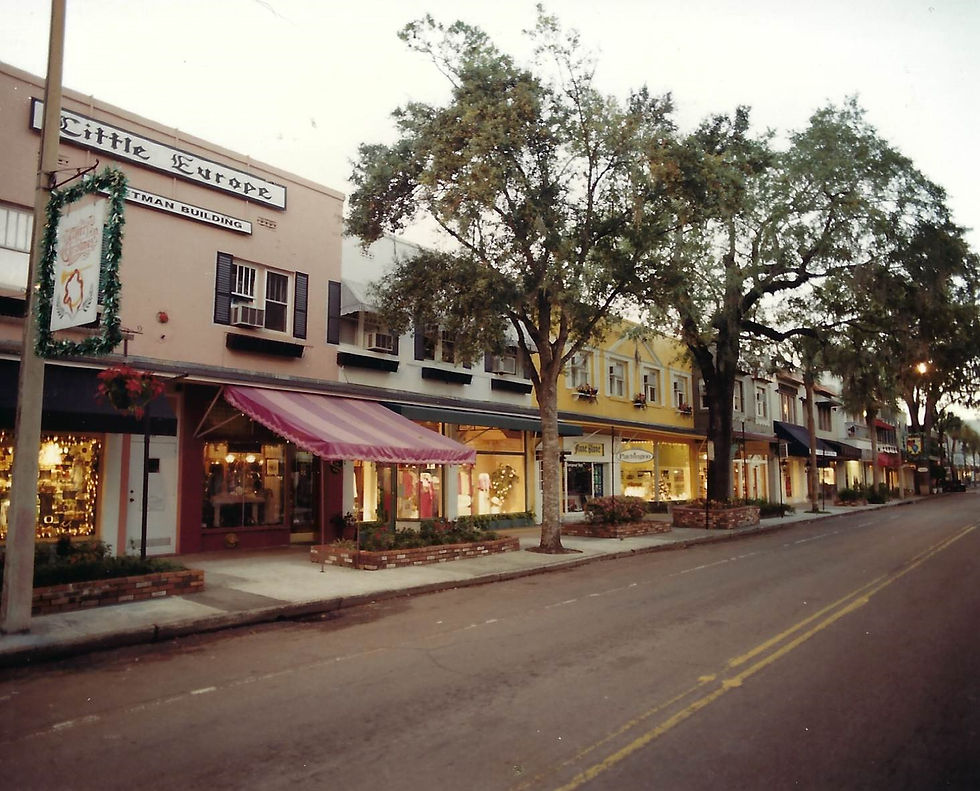Brick Roads of Winter Park
- Linda Kulmann
- Jun 15, 2022
- 2 min read
Updated: Jun 16, 2022
Uncovering the Story of our beloved brick avenues

During Winter Park's development in the 1880s, town roads are surfaced from any available, workable material. Some streets are originally paved in brick, others are concrete or sand. In fact, sand roads dot the Westside until the 1980s.
Over the decades, selected brick streets are paved over by concrete, then paved by asphalt, and then returned to brick pavers. By the 1920s Park Avenue is brick, and over the decades goes through this exact “metamorphosis.”
Photo Credit: Mark Winton

By the 1990s there is much discussion at City Hall and the Chamber of Commerce concerning the need for street beautification. For decades the Avenue has competed with indoor malls. Downtown charm is waning and needs a facelift.

In addition, big box stores and even chain restaurants are looking to locate on Park Avenue. In fact, by the late 1980s, the Olive Garden opens across from the Colony Theater. Yikes. Winter Park residents and family-owned boutiques are not happy.


By 1999 the City completes a total transformation of Park Avenue featuring bricked boxes on the sidewalks filled with lush plant material, a soft curve to the street in front of City Hall, and rebricking between New England and Canton Avenues. It is an enormous construction project, and the results are a game changer for the stores and restaurants along the bricked and beautified Avenue. A few years later Hannibal Square streets are beautified in the same manner.
There is another side of brick road construction. Although aesthetically pleasing, it is expensive to pave and maintain brick streets. They can be bumpy, lumpy, and tough on both your car and your body.

And sometimes, that is intentional. According to Jeff Briggs, Director of City Planning and Transportation, there are two types of road brick: smooth and rough. In fact, in the early 2000s when the Baldwin Park development projected 5,000 new homes bordering Winter Park, the City anticipated a looming traffic crisis. Together the Baldwin Park developer and the City of Orlando issued $700,000 to Winter Park for traffic abatement. Every dollar went to rough bricking Glenridge Way, Winter Park Road, Lake Sue, and Pennsylvania Avenues up to Holt Avenue. As one of the sitting City Commissioners remarked on the brick installation, “They may still cut through our town, but they don’t have to enjoy the ride!”
The Winter Park History Museum is supported by:
Charles Hosmer Morse Foundation
Elizabeth Morse Genius Foundation
Joe & Sarah Galloway Foundation
Florida Department of State
Membership dues and private donations















Comments